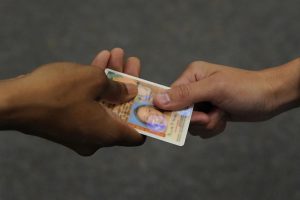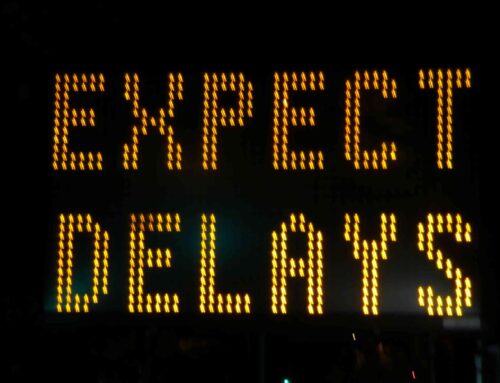Why requiring a driver’s license to look at public records is often a waste of time and money
Requiring a driver’s license as an unbending condition to access public records is like hunting dragonflies with a shotgun. It’s overkill. And a little silly.
Requiring a citizen to produce identification is almost always unnecessary yet it most certainly increases the chance that access to public records will be delayed. It also is a rule that is easy for a government official to abuse to blunt prompt access to public information.
The law clearly does not require that a government entity require that a citizen provide identification proving who they are to access public records. The law allows that a government entity may require proof of Tennessee residency, presumably because they aren’t technically required to fulfill public records requests to non-residents. But many government entities have taken the ability to ask for identification and turned it into a rule to ask for identification in every instance — no matter the unnecessary bureaucracy and cost — and have thrown common sense to the wind.

In the past several months, Tennessee Coalition for Open Government has received numerous complaints from citizens and journalists about having to provide a copy of their driver’s license to local and state government entities before their request would be considered. In each instance, this has delayed access to records. For example, one person made a request only to receive a denial letter 7 days later stating that ID was required.
This is becoming a widespread problem. A TCOG audit of 306 government entities released in May found that 84 percent required proof of residency before allowing access to public records.
Change the driver’s license identification requirement
There are easier ways to protect local and state government interests.
- Make it a practice to routinely fulfill requests for non-Tennessee residents, and only consider state residency requirements when a request for public records would take an unusually large amount of time and effort to fulfill. The state should not sweat the small stuff in the interest of promoting a free flow of information.
- Allow residents to affirm their residency through a checkbox on a Public Records Request Form, in an email or letter, or verbally. If someone affirms their residency in one of these ways, only ask for proof of residence if there is a plausible reason to think the person is not. For example, if the person makes a large or complicated request for records, states they are a resident, yet provides an out-of-state mailing address, the department could note the discrepancy, follow up with the requestor and ask for proof of residency if necessary.
Attempted fraud would be low. Most people simply would not lie on a form, lie on the phone or lie in person about whether they are a resident. If a custodian suspected they were lying, he or she could easily ask for proof.
Finally, the risk to a government entity of not requiring proof of residency is low. In most cases, if someone wants a large number of copies of public records regardless of whether they are a resident or not, they would be required to pay for them under the government entity’s policy, generating revenue. When the public record requested is easily accessible and easy to fulfill — such as minutes of a public meeting — what harm is there in letting a non-resident have copy of that anyway?
Changing the identification requirement helps government, too
Letting up on the driver’s license identification requirement would have many benefits for government entities:
It would reduce work for government employees by eliminating bureaucracy and the agency’s initial denials when a person is actually a resident. In the example stated above, the person denied access because he did not provide his driver’s license with the request worked for a local company, which was clear in the initial request. Still, in the face of this, the government agency filled out a denial form, mailed it and then had to process the second request by the person who resubmitted with a copy of a redacted driver’s license. Nonsense, right?
In another case, a county commissioner from East Tennessee requested minutes from two public meetings of a state board that oversees standards for local jails. She was denied access for several weeks based on not providing a driver’s license, even though she had made public records requests of the board before and received public records before. (It was pretty obvious which jail she was interested in.) Several emails back and forth between her and the state lawyer over proof of residency wasted time and effort. The state agency’s attorney had every reason to think the person was who she said she was and no reason to think she was not. Yet he would not budge on this rule. Why should an attorney with a state agency be wasting time on something so absurd as denying access to minutes of a public meeting?
It would reduce the chance that a requirement for proof of residency will be abused — or perceived to be abused — by a government official to delay fulfillment of a records request. See the state attorney example above. The law requires “prompt” access. (T.C.A. § 10-7-503(a)(1)(B): The custodian of a public record or the custodian’s designee shall promptly make available for inspection any public record not specifically exempt from disclosure.”)
Help residents who fear emailing or mailing a copy of their driver’s license for privacy reasons. This is particularly important for state agencies who are dealing with residents all over the state who may not be able to drive to Nashville.
Reduce the need of a government entity to handle and store confidential information — i.e., driver’s license numbers or other private citizen information on documents.
Help resident who struggle with technology to make a copy of their driver’s license. Some residents don’t have ready access to a copy machine or technology, or don’t fully understand how to take a digital picture, blocking out their driver’s license number, to email it. This is particularly important for state agencies who likely get public records requests from residents throughout the state, and cannot or do not wish to drive to Nashville to make their public records request.
Help residents who do not have a driver’s license or Tennessee identification document.
In sum, getting rid of the requirement that you must prove your Tennessee residency before accessing public records would:
- Reduce bureaucracy
- Improve customer service
- Save the government time
- Improve compliance with the spirit and letter of the law
- Promote a friendly and accessible culture in a government agency committed to transparency to citizens.


